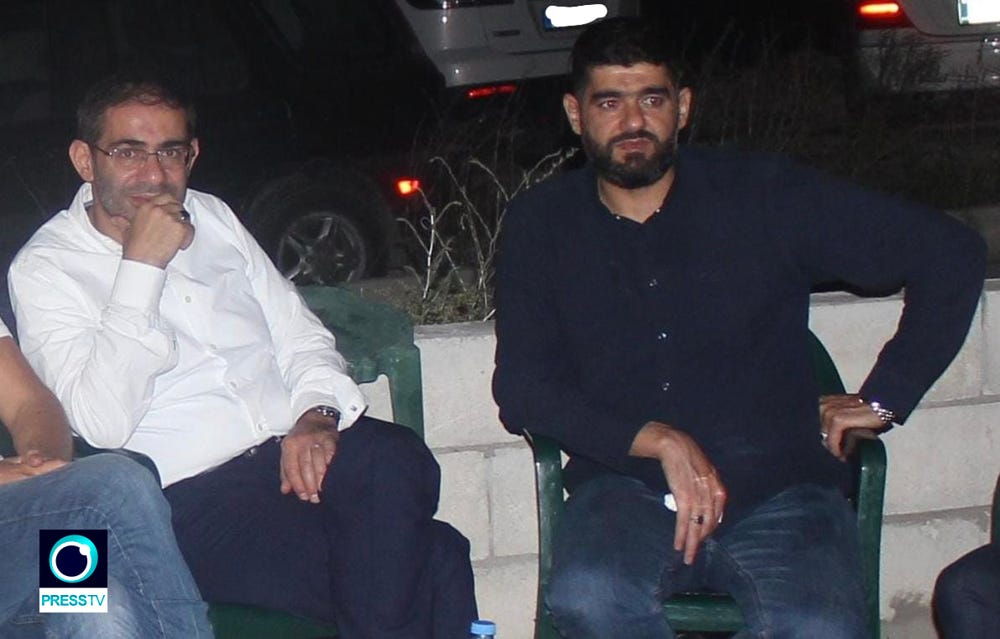He Was My Father, But He Belonged to a Nation
In memory of Haj Mohammad Kassir and Haj Hassan Kassir — two brothers, two pillars of strength, two silent architects of resistance.
My Baba never wore medals.
He never stood in front of crowds.
He didn’t ask for titles, or for recognition.
But today, I write not just as a daughter grieving —
I write as a witness to a legacy that can no longer remain silent.
They were brothers in blood and in mission — my father Haj Mohammad Kassir, and my uncle Haj Hassan Kassir.
Israel assassinated them within 24 hours of each other, thinking they had silenced strategy itself.
But Baba’s voice still echoes — in the diesel trucks that reach hospitals, in the wheat that grows on southern farms, in the pharmacies that carry medicine for the poor.
And Uncle Hassan’s legacy? It lives on in the quiet way the resistance never lost its balance — not even under siege.
A Father Who Built Futures, Not Fortunes
My father worked in shadows most of his life.
Strategic planning, logistics, operations — these were the words others used for his work.
But to me, he was the man who taught me that resistance wasn’t just about guns. It was about giving people dignity.
When Lebanon’s economy started to fall apart, Baba didn’t blame, he built.
He founded agricultural projects, launched supermarkets for the poor, brought in fuel when the hospitals were on the edge of collapse.
He didn’t wait for foreign aid.
He didn’t make speeches.
He just worked — day and night — to make sure no child went to bed hungry.
That was my Baba.
An Uncle Whose Silence Carried Strength
My uncle, Haj Hassan, was the kind of man you didn’t fully notice — until the moment he wasn’t there.
He was quiet, composed, always behind the scenes.
He never chased rank. Never pushed for recognition.
But when things got difficult, people turned to him.
Because they knew — he would never speak unless he had a solution. And he always had a solution.
They said he was close to Sayyed Nasrallah. It’s true.
But their closeness wasn’t about politics.
It was about trust — the kind you earn in trenches, not in offices.
They Wore Accusations Like Armor
When the enemy couldn’t reach them through war, they turned to lies.
Accusations. Sanctions. Character assassinations.
But my father never begged for a stage to defend himself.
Even when Sayyed Nasrallah offered to publicly clear his name, Baba said no.
“I will answer to God,” he said. “Not to liars.”
Eventually, Sayyed did speak. And he said what we already knew —
That my father was clean. Brave. Loyal.
That those who tried to stain him only revealed their own darkness.
They Lived for Others, and Died for the Cause
Both my father and my uncle had the option to retire, to slow down, to live in comfort.
They chose instead to give everything they had — and in the end, to give their lives.
They were martyred one after the other, as if even in death they couldn’t be separated.
Israel thought it had struck at the heart of Hezbollah’s planning unit.
But it struck at the heart of a family —
Our family.
Lebanon’s family.
What They Left Behind
They left behind five martyrs in one family.
They left behind projects that still feed and treat the poor.
They left behind maps, models, and missions that are still being implemented today.
They left behind daughters like me — who now carry their name not with grief, but with pride.
They left behind silence.
But not the kind you forget.
The kind that moves mountains.
My Final Words to Baba and Amo (Uncle)
I hope I made you proud.
I hope I live in a way that carries even a shadow of your integrity.
And I hope your blood, shed in silence, becomes the ink that rewrites the future of this land.
You gave your life for a cause — not because you had to, but because you chose to.
You saw the poverty and didn’t turn away.
You heard the whispers and didn’t flinch.
You walked into martyrdom as if it were the next meeting you had scheduled — calm, prepared, unwavering.
My father. My uncle. My protectors.
I will never stop telling your story.
Your daughter, forever


